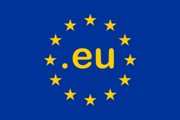Eurozone ministers seek unity on finance, economy
 Brussels - Eurozone finance ministers were meeting Monday in a bid to forge a unified response to the global credit crunch, while trying to avoid a recession at home.
Brussels - Eurozone finance ministers were meeting Monday in a bid to forge a unified response to the global credit crunch, while trying to avoid a recession at home.
The evening gathering in Brussels was the first in a series of preparatory meetings taking place in Brussels this week ahead of a November 15 global summit on the financial crisis in Washington.
And it came amid gloomy new forecasts from the European Commission, which now expects the euro economy to teeter on the brink of recession in 2009.
"Recession is a real risk, for some countries, for the euro area, and for the European Union," said European Economic and Monetary Affairs Commissioner Joaquin Almunia in presenting the commission's forecasts.
The unfortunate prospects for the so-called "real" economy were expected to feature prominently in Monday's discussions, which were to be followed by a meeting of the EU's 27 finance ministers on Tuesday.
"We are facing a very serious and problematic year," said German Finance Minister Peer Steinbrueck.
The commission forecasts have given rise to particular concerns in Spain, which is expected to see its unemployment rate surge to 15.5 per cent by 2010.
However, calls by the EU's French presidency for a stronger coordination of economic policies among eurozone governments have so far been met with scepticism from some member states.
"We are not in favour of creating new permanent European structures," said Dutch Finance Minister Wouter Bos upon arrival in Brussels.
Instead, member states should renew their confidence in the European Central Bank (ECB) and stick to the budgetary rules prescribed by the EU's stability and growth pact.
"We have a strong central bank, which is a strong instrument of coordination ... we have a pact, our main instrument for policy coordination, so I am not sure there is a need for a lot more coordination," Bos said.
France and its allies say governments should have a stronger say in the way the eurozone's monetary policy is run.
But others, like the Netherlands and Germany, fear that a so- called "eurozone government" could undermine the independence of the ECB, whose main task is to keep inflation in check.
According to the commission's latest forecasts, France is the only major eurozone country whose budget deficit is expected to exceed the 3-per-cent limit prescribed by the stability pact in the coming months, hitting 3.8 per cent in 2010.
However, Monday's talks were largely expected to focus on a set of proposals by the French presidency aimed at avoiding a repeat of the current credit crunch.
These include reforming the International Monetary Fund (IMF) and the World Bank and introducing stricter controls on lenders, investment funds and credit rating agencies.
France also wants to set up a financial "early warning system," crack down on the world's tax havens and link bonuses paid out to company executives to long term objectives, rather than to short-term risk taking.
So far, they have received a mixed response from fellow EU governments.
Germany's Steinbruck said there was little that was "new" in them, noting that his country had already started to tackle the problem while it held the helm of the Group of Eight in 2007.
And two leading non-eurozone members have already criticized them as being "too detailed".
"There is quite a lot of good stuff in it, but this is not the time to produce that level of detail to our international partners," one EU diplomat said.
At the Washington summit of the world's 20 leading economies, Europe is to be represented by three eurozone members - France, Germany and Italy - plus Britain. (dpa)